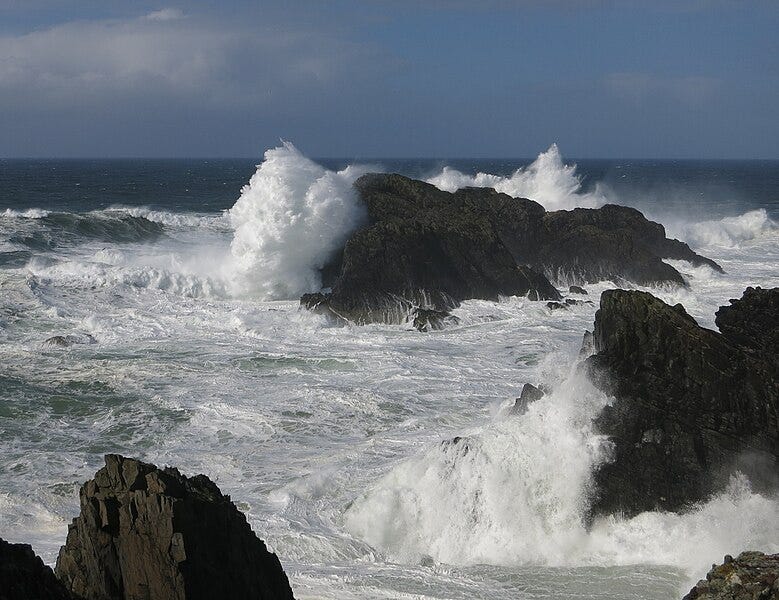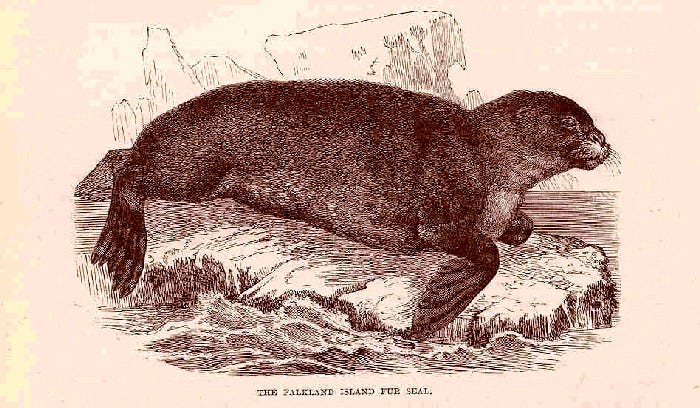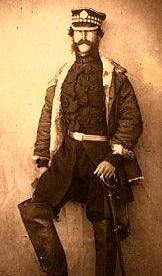To Value Our Blessings
War has yielded mankind unimaginable brutality and not a few absurdities. The bloodiest battle of the War of 1812 was fought on January 8, 1815, two weeks after the signing of the peace treaty meant to end the fighting. More than four hundred soldiers died and nearly two thousand were wounded during the pointless British assault on New Orleans, a result of the slow movement of information.
Another incident of that war has a connection to a town near my home. Hudson, New York, although 120 miles inland along the Hudson River, was in those days a thriving whaling and seal-hunting port. The city had been founded in the previous century by Quakers from Nantucket seeking a haven safe from pirates or British raiders.
In April 1812, Captain Charles Barnard hurried his preparations for an expedition from Hudson to the South Atlantic to take fur seals. He was anxious about the looming conflict between the U.S. and Great Britain. He sailed down the river and across the ocean to the Cape Verde Islands before war began. There, off the coast of Africa, he drew a supply of fresh water and a load of salt to preserve the seal skins. He continued south.
By September, Barnard’s ship, the Nanina, was in the bleak Falkland Islands, three hundred miles off Tierra del Fuego. He and his crew landed at a harbor on New Island and unloaded the parts for a smaller, shallow-draft vessel for maneuvering the tricky waters of the archipelago. They hammered this boat together and began to hunt and skin seals on the islands.
Barnard was soon visited by the captain of a whaler, who told him that war had been declared. The Nanina could now be taken as a prize by virtually any British ship. Barnard decided to move his base to a hidden harbor on another island and continue his hunt.
In April 1813, his crewmen spotted smoke. They discovered that a British ship, the Isabella, had been carrying passengers back from Australia. She had wrecked on one of the islands in February. The fifty-seven men, women and children aboard were living in makeshift shelters and consuming provisions saved from the ship. Some of them were British soldiers and officers on their way home. One woman had given birth to a baby soon after the wreck.
They had sent off a small crew in the Isabella’s 17-foot longboat to try to reach Montevideo, a thousand miles away. They were afraid they would not survive the looming winter. For his part, Barnard conveyed the news that their two countries were now officially at war.
Barnard did what he could to help. He began to prepare the Nanina to transport the passengers to South America. He then ventured to another island with one American and three British volunteers to hunt provisions in the form of geese and wild boars. They would need the extra the food to sustain the refugees. When he returned, Barnard was amazed to find the Nanina gone.
Soon after Barnard had departed for his hunt, a British warship had arrived. She had been sent out by the longboat’s crew, who had managed to make it to Uruguay. Now, with the help and encouragement of the Isabella castaways, the gunboat’s captain, William D'Aranda, took possession of the Nanina. The Englishmen repaid the Americans for their aid by arresting them as prisoners of war. Then they sailed away, deliberately stranding Captain Barnard, his crewman, and the three British sailors.
This began an eighteen-month ordeal for the five men. Barnard organized them to survive against the odds. His dog, named Cent, helped hunt wild hogs, for a time their only food. Occasionally they could collect albatross eggs or kill birds with thrown clubs. For a number of months, Barnard’s four companions rebelled against him and fled in their small boat to another island. They stole Barnard’s jacket, blanket, rug, and most of his ammunition. The captain found himself alone, with “only a club, knife and steel . . . to procure the daily food necessary to my painful existence.” He became a true Robinson Crusoe.
Finally, the mutineers asked the captain’s forgiveness and they reunited. The men continued their marooned existence, dealing with the cold and their deteriorating clothing. The wind-swept islands were almost devoid of trees or any kind of vegetable. The wounding of Cent by a boar put the dog out of commission for a time and limited their food supply. They literally ate crow, consumed roots that made them sick, and burned sea-elephant blubber for warmth.
On November 26, 1814, after 534 days marooned in one of the most inhospitable places on earth, the men spotted two British whaling ships. The captain of the Indispensable told Barnard he had been advised to look out for them if he visited the islands. The ships took the men aboard. They rounded Cape Horn and hunted whales in the Pacific before the castaways asked to be put ashore in Peru.
Barnard’s adventures were not over. He took passage on other ships, sailed around the South Seas as far as Hawaii and China, returned briefly to seal hunting, and finally gained passage aboard a ship bound for Nantucket. He arrived there in October 1816, nearly two years after the war’s end. Although he remained resentful of an “unprecedented act of treachery and ingratitude,” Barnard finally concluded that “to value our blessings we ought sometimes to be deprived of them.”






I agree with pretty much all the other comments. I found the tale amazing and the man heroic. Thanks again, Jack.
Morning Jack. Another really good story from Talking to America. War back then was just as bad, if not worse than today. Bernard was a smart man and did do well and learned that having nothing, he could still come out okay. We have so much and I do try everyday to be very thankful for that blessing.